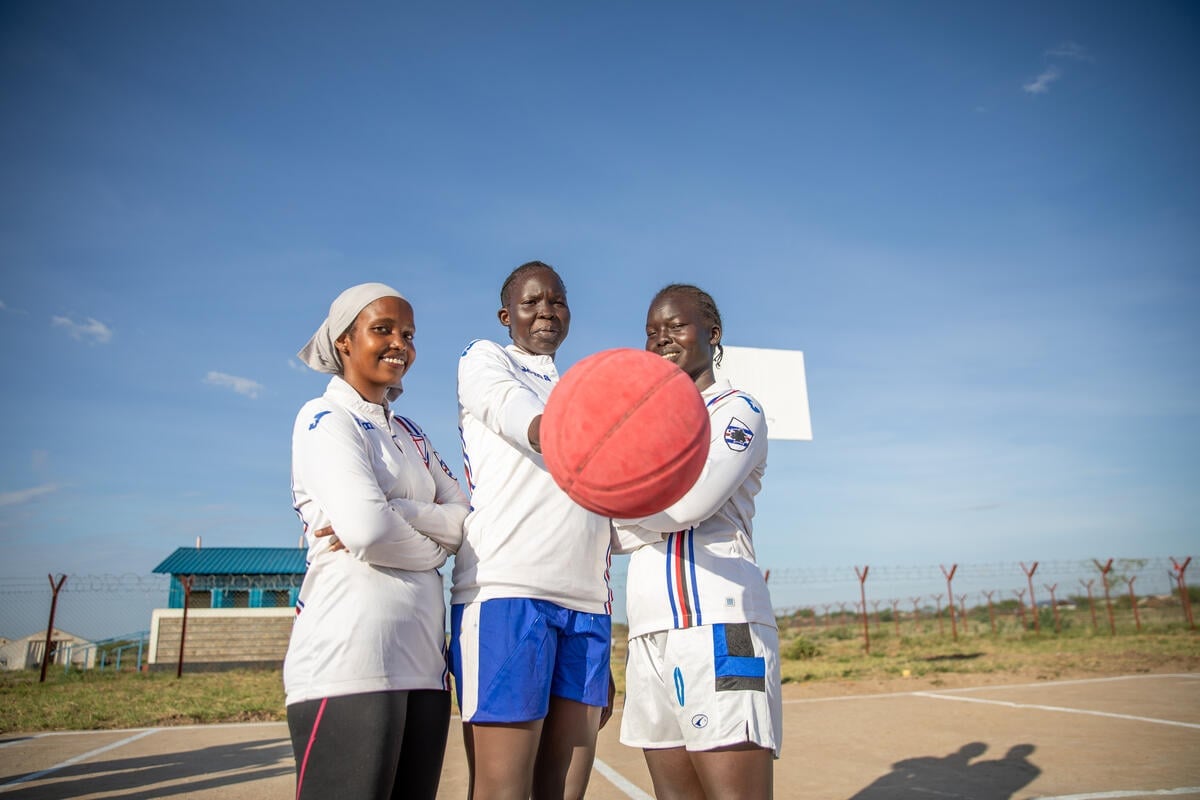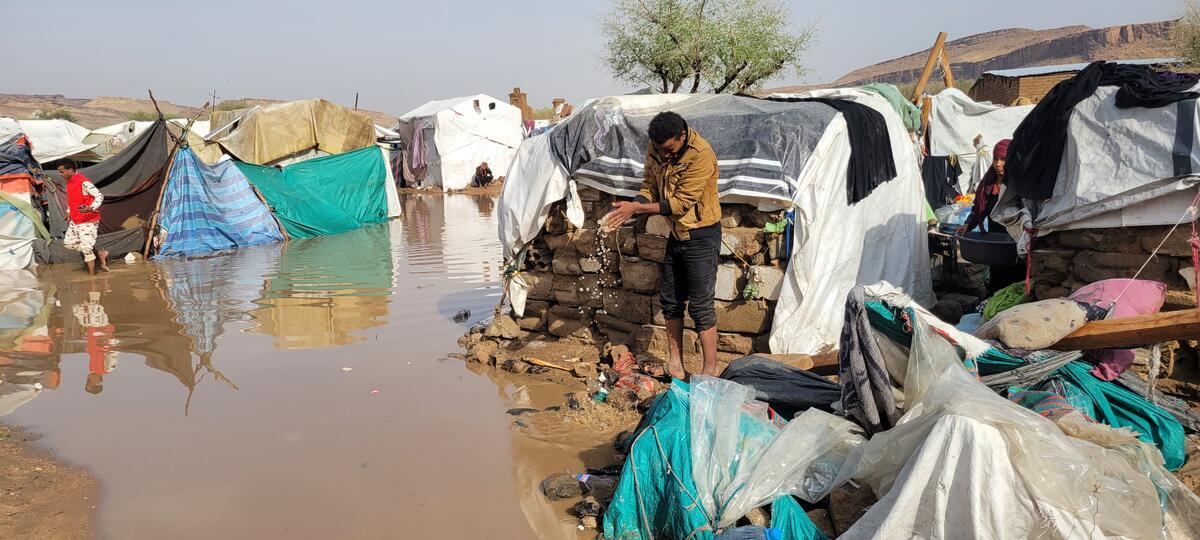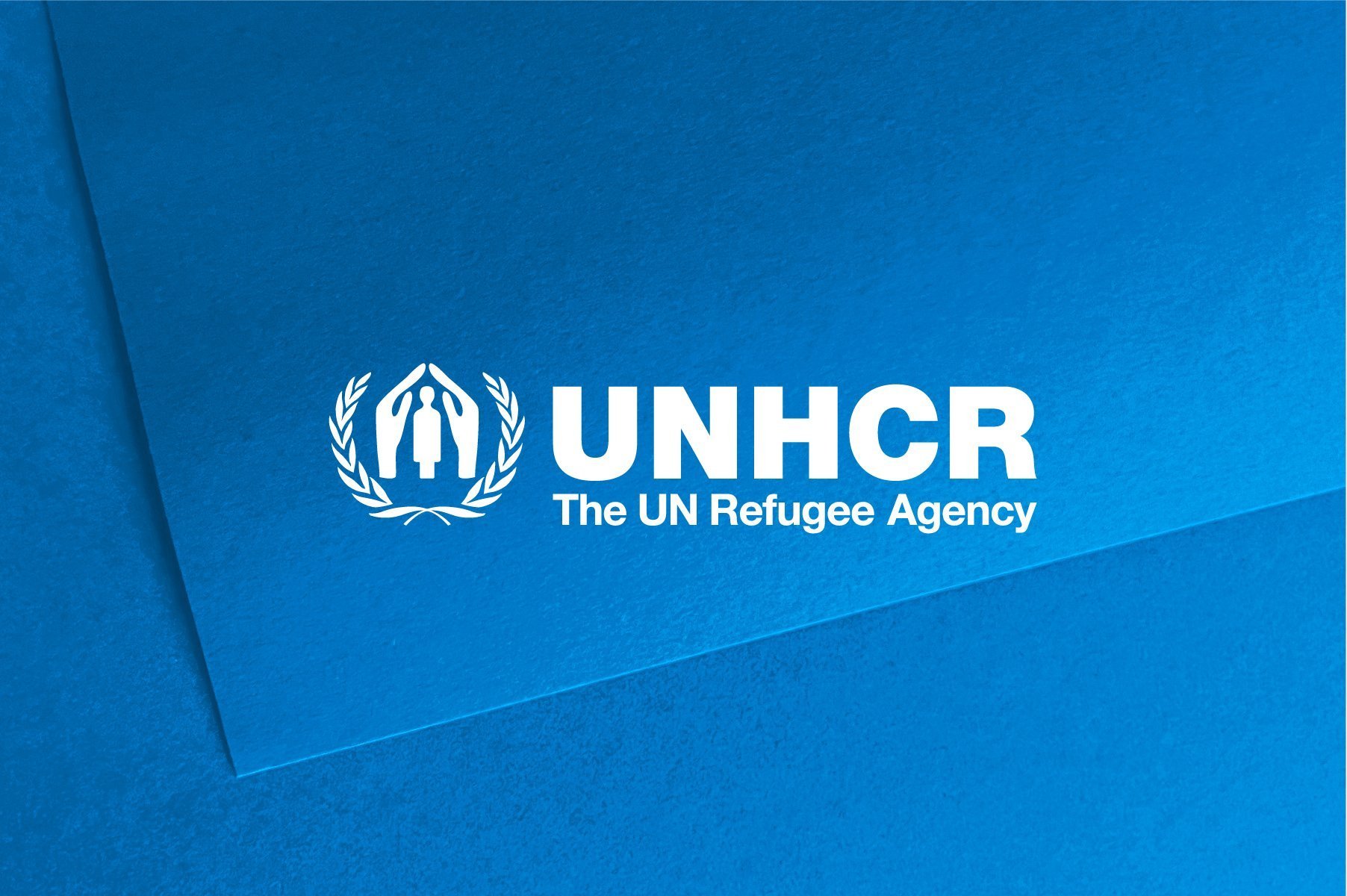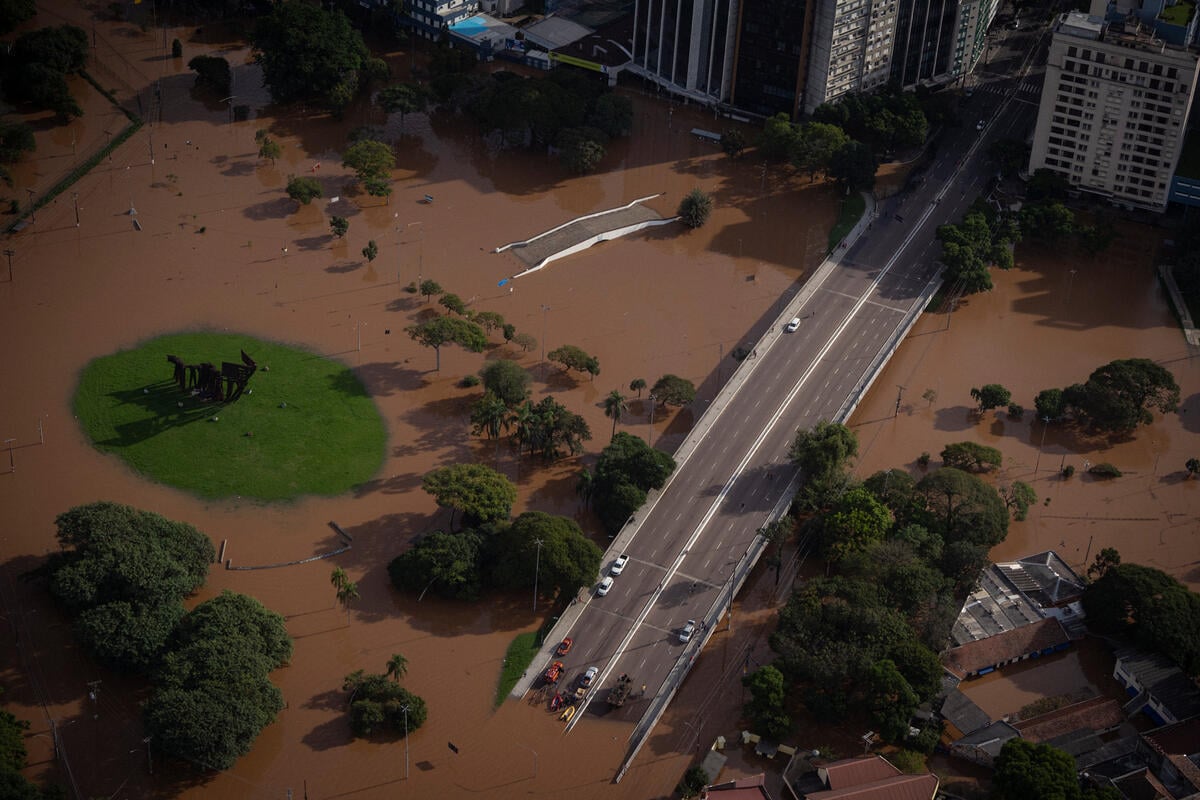The Nansen prize: Documenting the Displaced - Salima's story
The Nansen prize: Documenting the Displaced - Salima's story

Salima is 19 and is wearing red lipstick, but the clothes she has on are not her own. She doesn't like them and appears very bashful - or "shying" as she puts it.
Along the rubbish-strewn lanes of Basatine, her temporary home is a cramped, dark room in a safe house controlled by trafficking gangs. There are four such clandestine houses hidden in this shantytown, sending young Somali men and women on to Saudi Arabia, where they hope to find work and a better life.
Having fled the ongoing violence that plagues their homeland, they are now free to stay with the traffickers until they find the $25 that they need to be driven into the desert. Here, it can take weeks to save that kind of money. Salima has been going begging.
Living the last three weeks in a daze, she returns from the city each evening to sleep on a threadbare mattress. If she is late, she passes out on the bare floor surrounded by 20 other women who share this makeshift room knocked together from thin plywood sheeting. Lately the rain has been seeping in. Far from home and without any other choice, this is all there is. She looks totally drained. The last six weeks of her life have been a nightmare.
From a generation that has known nothing but war, Salima grew up in Mogadishu but despite the risks, she was determined to stay. Along with her baby boy, Abdi Sallam, and the husband she adored, the family stuck together in their little two-storey house. "It was our home. My favourite place in the world." And besides, Salima was pregnant again.
One morning, undeterred by the sound of gunfire in the distance, Salima popped out to buy some bread for the family's breakfast. A man walking ahead of her fell to the ground, hit by a stray bullet. Rushing over to the wounded stranger, the screech of a Hound rocket sent her crashing to the ground. Mortars had pierced the upper floor of her home. "I found my husband and child but they were not with us anymore." Both had been killed in a random attack by the very soldiers that were supposed to be protecting them.
Like so many other families without a roof over their heads, enough was enough. Salima's mother, brothers and sisters began to pack up their remaining belongings in preparation for the trek on the only safe road out of the city: south to the camps. But Salima had other ideas, having heard just how bad things would be there. "I had just lost my husband and child. Now I wanted to help my mother - to try and make her life a bit better. I thought maybe I could help."
And so, at seven month's pregnant, Salima headed north. She had listened before to stories about the dangers that lay ahead but was more concerned about getting out of Mogadishu. Travelling for 20 days by truck, violence erupted at checkpoints every few kilometres, as bandits intimidated and looted passengers. "The road was horrible. I was so scared." A woman in the vehicle ahead was raped at gunpoint; Salima just tried to block everything out. Her last night in Somalia was spent sleeping out in the coastal mountains near Bossaso.
The following morning along with over 120 others, she was hauled from the water aboard a small wooden boat that would take them to Yemen. "The crew had been drinking gin and smoking hashish but they saw that I was heavily pregnant and so they allowed me to sit with my legs out." Everybody else was made to sit with their knees tucked under their chins as the crew armed with guns, knives and hammers threatened to beat anyone who might upset the already unstable vessel. "The sea was rough and I started to get pains." Salima was starting to get contractions but didn't want believe that she was going into labour, so just wished them away and tried to keep quiet.
That night a man started begging for water to drink; the smugglers beat him in the head with a knife. His bloody body was thrown overboard. Then Salima started to bleed. Whimpering quietly, those sitting beside her pleaded with her to keep quiet for fear that they might all be beaten. But the blood started dripping onto the men below and it wasn't long before the crew realised that she would give birth before they reached the shores of Yemen.
At first she was sure that they were trying to help. She was moved to the front of the boat as they washed the blood away with seawater. Then she passed out. All she can remember is that when she came round, she saw one of the crew throw her newborn child into the sea as if it was a ball. "My baby was all I had left of my husband." She was going to call him Abdu Laahi after her uncle.
After arriving at a deserted beach in Yemen, Salima was registered at a UNCHR-run reception centre. She saw a doctor but didn't want to talk about what had happened.
It is still hard for her. It is only six weeks since Salima went out to buy bread. She is a fragile teenager who is now completely traumatised and on her own; and so now she is back with the smugglers. She says she will go "Where Allah takes me". Most likely it will be to spend the following years of her life enslaved as a housemaid in Saudi Arabia.
By Alixandra Fazzina, Basatine, Yemen
UNHCR's annual award recognizing outstanding work on behalf of refugees goes to photojournalist Alixandra Fazzina for her powerful documenting of the lives of those displaced by conflict.





















